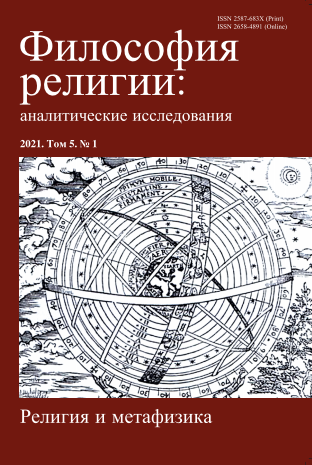German-Russian Philosophical Dialogue: God and the World in S. Frank and M. Scheler
DOI:
https://doi.org/10.21146/2587-683X-2021-5-1-68-83Keywords:
metaphysics, religion, fundamental principles, dialogue, mysticism, creation, vitality, teism, panteism, panentheismAbstract
The commonality of views of S. Frank and M. Scheler on the question of the relationship between God and the world is based on the fact, that both philosophers relied on the ideas of Platonism and German mysticism. Both philosophers were convinced of the existence of a spiritual identity between Russia and Germany. This affinity is expressed in the reception of the mystical worldview. The article examines the views of Scheler and Frank on the development of Russian and German cultures. The article examines Frank's point of view on the existence in Europe of a single “eternal philosophy” that goes back to Platonism and Eastern Patristics. This philosophy, according to Frank, is the main line of philosophy in Europe and Russia. Frank continues the tradition of Neo-Platonism, medieval German mysticism and mysticism of German classical philosophy (Baader). God, according to Frank, is an incomprehensible fundamental principle of being. The creation of the world is the revelation of the inner life of God. In a later book “The light shineth in darkness” Frank doubts the omnipotence of God, but does not renounce the idea of the existential unity of God and the world. God as Spirit reveals “weakness” in the world. Frank's position is panentheism. Scheler, like Frank, is associated with Neoplatonism and German mysticism (Schelling). Scheler’s world and God are in close connection. God becomes a personal God in the process of creating the world. Like Frank, Scheler comes to the conclusion that the spiritual principle has no power over the vital principle. His position should be characterized as pantheism. Thus, Frank and Scheler act as followers of the mystical doctrine of the direct connection between God and the world. In their worldview, neoplatonic mysticism, German mysticism and Christianity are united into one whole.

 This work is licensed under a
This work is licensed under a 
